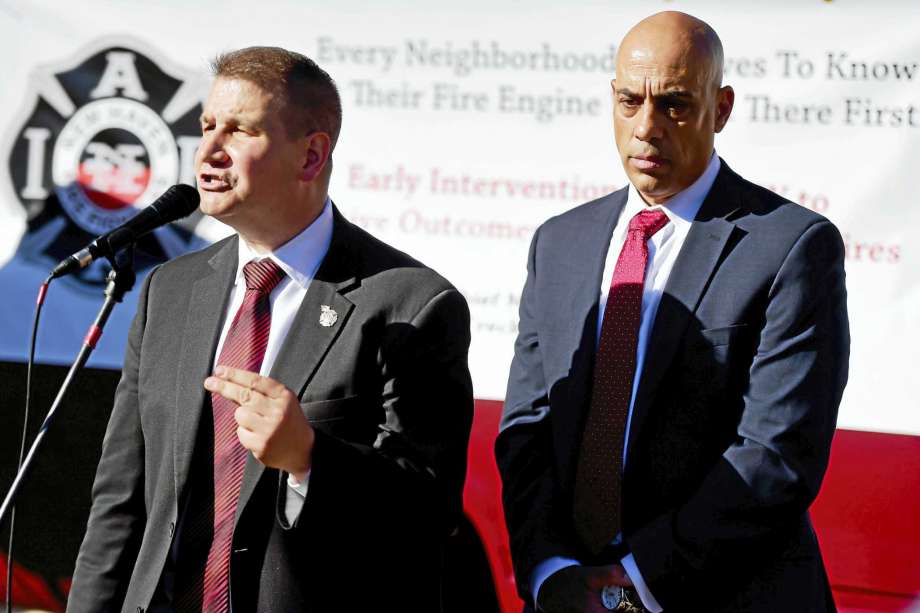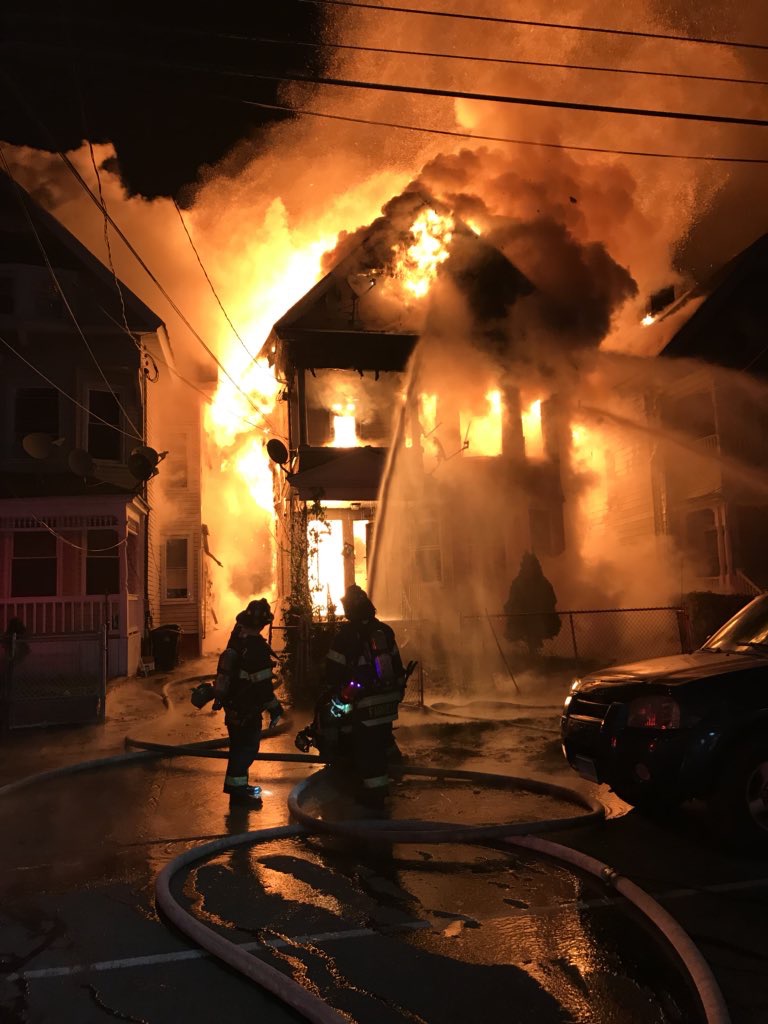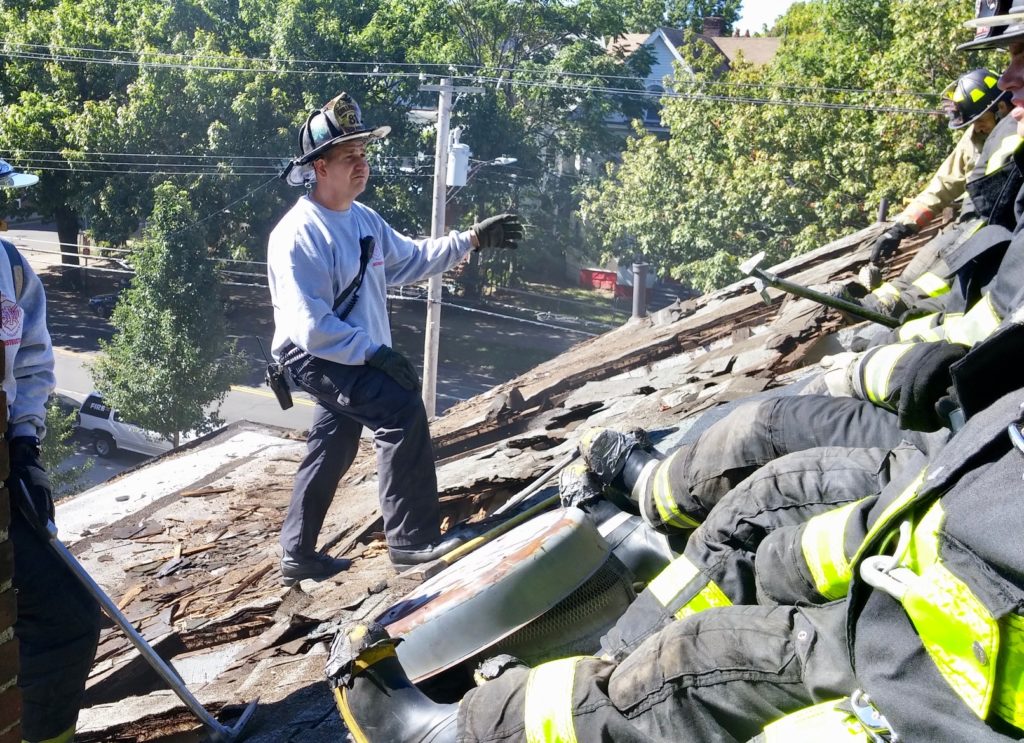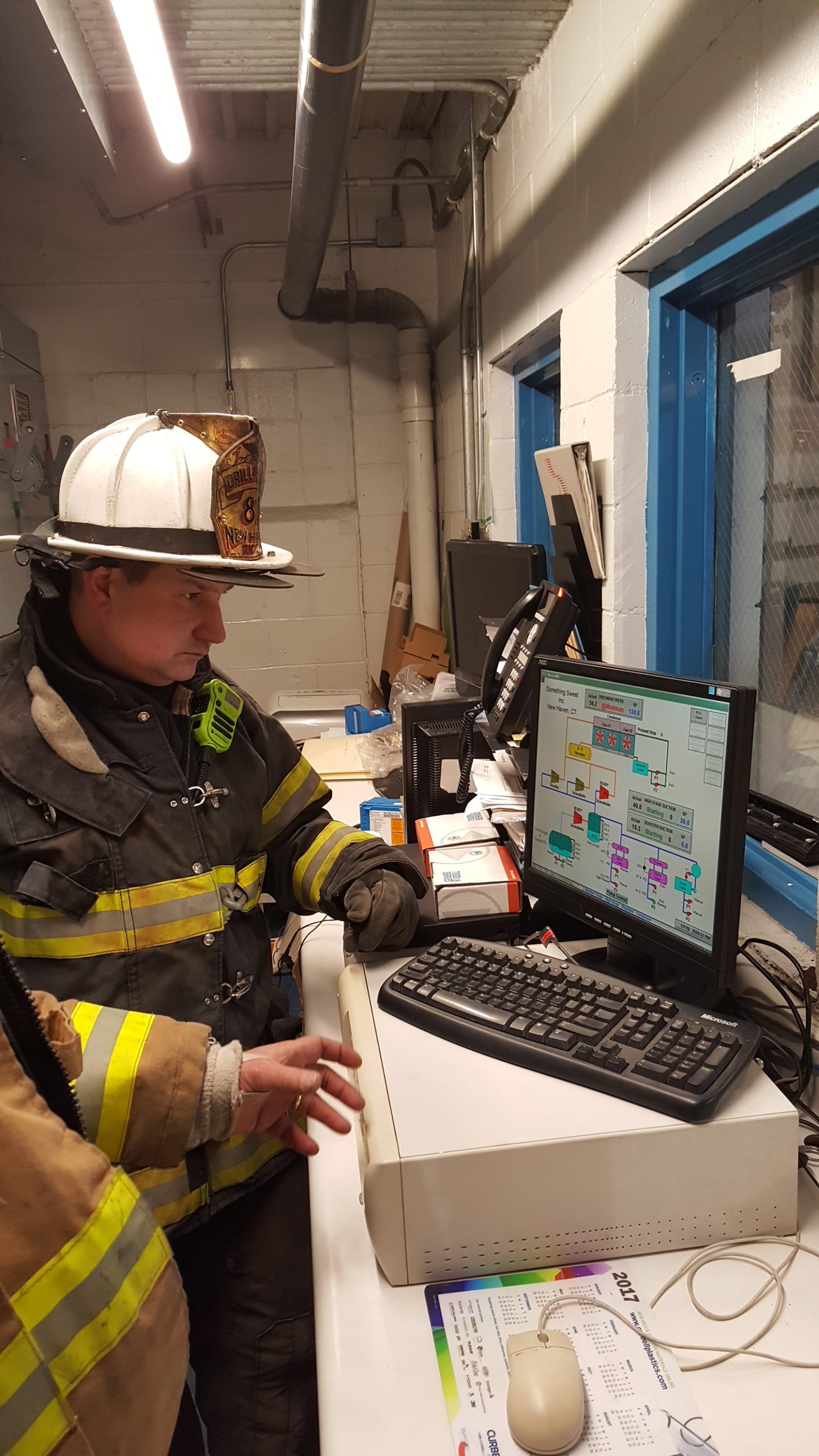Frank Ricci was a firefighter for over 25 years, and retired last year as a Battalion Chief and Union President for New Haven Fire Fighters. He was awarded numerous commendations during his career, including the medal of valor. He is currently a contractor for Americans for Fair Treatment and a senior strategist for Yankee Institute. He also serves on the advisory board for Fire Engineering Magazine. Frank was the lead plaintiff in the landmark Supreme Court case Ricci v. DeStefano and has testified before Congress. He lives with his wife in Wallingford, Connecticut.
While Frank was president of his local union he led the local through the process of disaffiliating from the statewide union, allowing his local union to operate independently. Here he explains the reasoning behind the union’s decision to disaffiliate and how the statewide union responded. Spoiler alert: They weren’t happy.
Can you tell us a little bit about your history with your local union in New Haven, Local 825?
I was in union leadership positions in New Haven for 16 years. I was on the executive board for years, then I won two terms as the vice president and two terms as the president, never losing an election.
What led you initially to get involved with your union?
I essentially got involved in the union as a health and safety advocate. We worked to improve firefighter safety and survival in our state and across the nation.

When was it that you started to get concerned about what was going on with the statewide union, the Uniformed Professional Fire Fighters Association?
Throughout my career I didn’t really see what value they brought to the table. State associations say they give you access when you can’t be at the statehouse. But in Connecticut, everyone is so close – if I had to testify on a bill I could be at the Capitol in 30 to 40 minutes. In Connecticut your state leaders, and even your federal representatives or senators, they are all so accessible. Firefighter unions aren’t like other unions – everyone wants to be seen with a firefighter. It isn’t hard to get access to politicians or elected leaders. So a lot of the bravado of the state association about giving you access, it was just fake.
So we didn’t see the value in what they were providing. They weren’t speaking for New Haven firefighters, and at times they even spoke against what our interests were.
In what way was the statewide union speaking against your interests?
They proposed a post-traumatic stress bill. The bill that they put forward would have served as another unfunded mandate for municipalities, which would have then hurt us at the bargaining table. Even worse was the fact that the bill represented a road to retirement, not a road to recovery. We wanted the PTSD bill to be there so if someone had PTSD and had a real problem, it would provide a road to treatment. That was the bill that we eventually got through, with bipartisan support, instead of the first concept that was put forward by the state association.
At what point did your local union decide it was time to disaffilate from the statewide union? What was the catalyst for that?
In 2016, when I was elected president, I found out that the union’s spending was out of control. We were down $80,000 from the year before. When I took over as president, I said, we’re going to right the fiscal ship here and we’re going to start making prudent fiscal decisions. So I sent an email to the state association president, and said, listen, I need to get my fiscal house in order, so we’re not going to be members this year, and I’ll reevaluate in another year.
That turned into this big huge internal fight where they said that we had to be members. That led to a big meeting with our international affiliate, IAFF (International Association of Fire Fighters), and its district vice president, the president of the statewide union, my vice president and my treasurer. At the meeting my vice president asked, where is all our money going? We weren’t seeing any value for the money we paid them. I don’t want to be paying money so our state leaders can go out to dinner and travel the country. So we asked the question, where was our money going? Then they admitted that they were basically taking our local union’s money and using it to fund activities for the smaller locals. That’s when I said, wait a second, we didn’t agree to that. Our membership was actually limited to paying for statewide legislative efforts. So my members are paying dues so other towns can negotiate their contracts? That’s misappropriation of funds.
So, in a nutshell, we weren’t seeing the value in what we were paying the statewide union, and we also learned that they were using our dues inappropriately.
Were the members in your shop all behind you?
Yes, the executive board voted unanimously in 2016 to disaffiliate from the statewide union, the UPFFA. I didn’t even vote. As president I stopped the practice of the president voting unless there was a tie. But the executive board voted unanimously to get out of the UPFFA, because we wanted to get our fiscal house in order, and because we didn’t see the value in the services that they were claiming to provide.
After you voted to disaffiliate you ended up in a lawsuit. What was that like?
We sued them. What happened was, we got out, then they tried to strong-arm me, and we basically told them to get lost, they weren’t going to intimidate us. A year later they put us into collections and we still ignored them. Then they started to call my mother, they called my wife. They put my wife on the collections notice for the union. That’s when we said, enough is enough. We reached out to a public-interest law firm called the Fairness Center, which provides free legal representation to those hurt by public-sector unions, and we filed suit against the statewide union. We achieved 100 percent of our legal objectives.
What do you mean by that?
Our goal was to not pay any back dues, to walk away owing nothing, and to still be disaffiliated. The unions are like “Hotel California,” you can check out, but you can never leave. The judge interpreted the statewide union’s bylaws in a way that required our union to pay one more year of dues to the statewide union after disaffiliating. But he also said in a hearing that the statewide union had possible unreimbursed travel, suspicious PAC (political action committee) funding, and an improper loan taken from a charity, that they repaid. He said the trial would continue for misappropriation of funds.
Instead, we settled with the union with the agreement that we would not pay them a dime, and the judge’s order that we were completely disaffiliated would stand. Despite the rumors and propaganda spread, we did not and would not pay any of their legal fees, and we would not agree to any gag order of issues that were common knowledge or brought up in open court.

In terms of the nuts and bolts of disaffiliating, it doesn’t sound like it was a very difficult process. Is that accurate?
The basic rule is that a local union can disaffiliate whenever it wants, but if they’ve agreed to any other procedures, the local has to follow those procedures. So it depends on the state or national association’s bylaws. Often you just have to send a certified letter after you have the vote to decertify. The issue that complicated our case was the statewide union claimed we needed an entire membership vote to disaffiliate. Our interpretation, which turned out to be the winning interpretation in court, was that only the Executive Board needed to vote.
During that hearing you realized that there was some possible corruption going on, is that right?
We alleged that there was a misappropriation of funds. We said that our dues should only have been used for legislative activity, and we had serious questions about possible unreimbursed travel, PAC funding, and everything else. It came out that the association president had traveled with his girlfriend to Florida, St. Croix and Hawaii. There was no direct evidence in the court hearing that these travel expenses were ever paid back.
Do you think there’s a disconnect between the local unions and union leaders at the state and national level in terms of what services to provide and what brings value to workers?
If you look at the contracts that the statewide union negotiated, they are horrible negotiators. I think it’s a dinner and travel club. At least, that’s what it appears to me to be.
Do you think that is true not just for firefighters but for other unions as well?
Any city union that is paying dues to a state or national association, they are likely doing very little for them. All politics is local. Even in Washington DC, they don’t want to hear from a lobbyist, they want to hear directly from firefighters. From the local president or members. So what value do your dues really bring?
There’s also the question of the politics of national unions, how they are usually only supportive of one party. Do you feel like there is some resentment at the local level in terms of how national unions mostly support Democrats?
Absolutely. I don’t even think it’s only about supporting Democrats. I think most people can reconcile that a union should be advocating for wages, hours, and working conditions. When I say working conditions, especially if there’s a safety issue. The union can be a strong advocate for worker health and safety. Especially in cities, where there is no real opposing party. Most cities in America are one party rule, so the union can serve as a check and balance against one party power. But national and state unions no longer advocate for the workers, they’ve become an arm of the Democratic Party. We see unions advocating for abortion, a $15 an hour minimum wage – and now we see the Treasury union, which represents over 150,000 government workers, one of their main priorities is Washington DC statehood. What does that have to do with the rank and file member? They’re going after structural changes in America. They betrayed their membership long ago to become an arm of the Democratic Party.
How can things change at the national level so that unions are more responsive to their members? Do you still see a purpose for national unions?
I think they need to be more transparent. I think they need to be overhauled, and I think they need to get out of policies that don’t affect wages, hours, and working conditions.
You were a local union president, and you couldn’t figure out what was going on with the finances at the state level. Why is it so hard to figure out the financials for the state and national unions?
Most union bylaws give each member the right to access and review the union’s financial documents. Even union locals that don’t specify an individual’s right to transparency still require their treasurers to issue a financial report at each meeting. Members should ensure this report tells the whole truth by moving to post these raw financial records online or to make them somehow accessible for review. But third-party financial audits are not always as complete or credible as you would think.
Credit card statements are the one type of record that every local, state, or national labor leader hopes you won’t request – and that you absolutely should ask for, every year. This list of expenses can’t be sugar-coated or covered up. It provides true transparency and allows honest questions to be asked.
Do you think that there should be more transparency in terms of access to financial records at the state and national level?
That’s where the LM-2s come in. I think every union should have to provide LM-2s. I was a treasurer and a union president, I was part of the entire institution, but I didn’t know what an LM-2 was. What I think is interesting is now that I know there is an LM-2, we were able to find donations from the Muscular Dystrophy Association to the IAFF, when it was supposed to be the other way around. We also uncovered a bunch of donations from manufacturers to the unions, when the union is supposed to be the watchdog for firefighters with these manufacturers. The purpose of the LM-2 is to inform the union member, so it can have an impact on elections and transparency. Now you have a candidate running for the IAFF presidency who has committed to being more transparent and has said that he won’t take money from manufacturers. We also have the president of New York City Fire Officers, who is running for general secretary treasurer on a platform of reform and rooting out corruption.

Do you think it’s going to take other local unions rising up and disaffiliating to get the attention of national and state associations?
I’ll speak for the fire unions. There’s a phrase in the fire department – when you have a building fire, you’ve got to go in, locate, confine, and extinguish the fire. So, if the IAFF can’t locate, confine, and extinguish the corruption from the inside, it’s time for everybody to pull out and let it collapse.
We won’t know if that happens until after the next election. With everything I’ve helped bring to light, Harold Schaitberger, the general president, abruptly ended his bid for reelection. The FBI and the Department of Labor are investigating the IAFF. Harold Schaitberger is also the vice president for the AFL-CIO, and he was the first union president to endorse Joe Biden.
Now, we have union officials on the national level talking about transparency, opening their books, and not taking money from special interests. This is the first year we’ve seen that because of the LM-2s. Now there’s a possibility for reform. I think every union should have to do an LM-2, including locals. And I think they should include every category that would show up on an end of the year credit card statement – travel, restaurants, retail, miscellaneous, all of those things.
What else do you think would be helpful for people to know if they are thinking about disaffiliating?
I think union members should evaluate and really take a hard look at what is the actual value that you’re getting from your state and national unions. Are they getting involved in issues that don’t involve wages, hours, and working conditions? Often we find that instead of advocating for the workers they become a travel and restaurant club.
